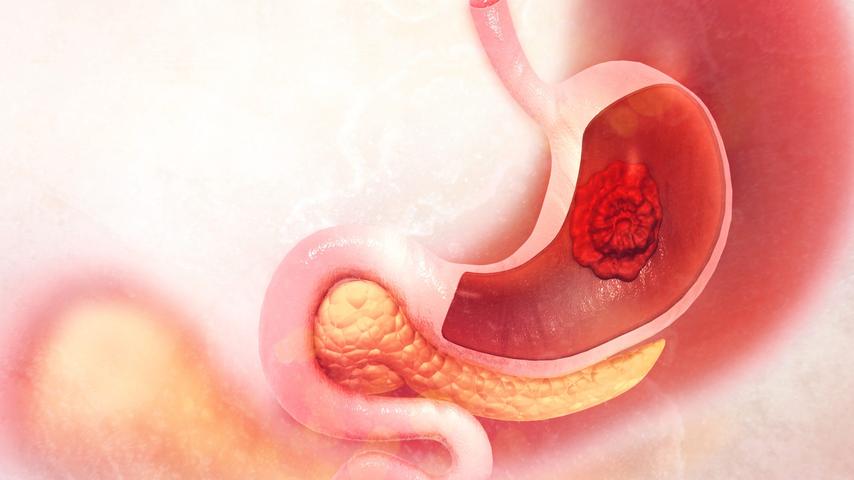What is Stomach Cancer? Treatments, Surgery & More

What is Stomach Cancer?
Stomach Cancer, or Gastric Cancer, is the uncontrolled growth of cells in the stomach. The stomach is a part of our digestive system and produces enzymes and acids for breaking down the food we consume. The stomach's inner lining, Mucosa, produces the enzymes and acids for digestion.
As observed in many cases, stomach cancer begins in the tissues of the Mucosa. The cancerous cells can grow uncontrolled and spread to other organs of our digestive system or enter the bloodstream resulting in the spread of cancer.
Different Types of Stomach Cancer
The different types of stomach cancer are based on the tissue they originate from. The following are the different types:
- Adenocarcinoma:
Cancer originates in the cells of the stomach's inner lining (Mucosa).
- Lymphoma:
Cancer of the lymphocytes located in the stomach wall. Lymphocyte cells are a part of the immune system.
- Sarcoma:
Cancer that begins in the soft tissues and bones. Gastrointestinal Stromal Tumors (GISTs), a rare form of cancer, develops in the walls and the tissue lining of the stomach.
- Neuroendocrine Tumors:
Cancer in the cells of the neuroendocrine system. The cells act as nerve cells and hormone-producing cells in the digestive system.
What Causes Stomach Cancer?
What causes stomach cancer has not yet been accurately determined and is a subject of study. However, some lifestyle, genetic and external factors may lead to the occurrence and growth of cancer cells in the stomach. Some factors are as follows:
- Consumption of highly salted and processed foods
- Excessive smoking and alcohol consumption
- Obesity
- Family history of cancer
- Exposure to cancer-causing substances
- Malignant tumours or growth in the other organs of the digestive system
- Helicobacter Pylori, a micro-organism that causes bacterial infection in the stomach leading to cancerous ulcers
- Genetic Predisposition towards certain conditions and syndromes like Lynch Syndrome and weak immunity is one of the many causes of stomach cancer.
Symptoms of Stomach Cancer
The symptoms of stomach cancer become more evident in the advanced stages. The symptoms that do appear are often misunderstood as common ailments. This makes stomach cancer detection difficult in its early setting. The following are more indicators of malignancy:
- Loss of Weight
- Loss of appetite
- Nausea, Fatigue and Vomiting
- Indigestion and Heartburn
- Vomiting Blood
- Dark or black stool
- Abdominal Pain
- Difficulty in Swallowing
- Feeling constantly bloated
- Feeling full after eating little food
Risks and Complications Related to Stomach Cancer
Stomach Cancer is the uncontrolled growth of cancerous cells in the stomach. The risk and complications associated with different stomach cancer stages are as follows:
- In its early stage, stomach cancer manifests in symptoms like weight loss, loss of appetite, nausea, vomiting, abdominal pain and other gastric problems.
- Gastrointestinal Bleeding can occur in both the initial and last stage of cancer. Bleeding lowers the red blood cells leading to anaemia, and the stools become darker.
- Malignant tumours on the stomach lining can burst and make a perforation (hole) in the gastrointestinal tract. Gastric perforation is a serious condition that requires immediate medical attention.
- Obstruction of the small bowel due to the advancement of cancer in the abdominal region blocks the passage of waste from digestion, causing bloating, vomiting and other problems.
Diagnosis for Stomach Cancer
Suppose you are having gastrointestinal issues out of the blue. In that case, you should visit a health centre for a stomach cancer diagnosis. The steps for stomach cancer detection are as follows:
- Physical Examination by the doctor
- Medical History and the family history of the disease will be noted.
- Blood tests
- Upper Endoscopy for examining the stomach by inserting a camera attached to a tube
- Biopsy of the sample collected through endoscopy to check for cancer
- Radiology Scans such as CT scans, MRI and PET scan for identifying tumours and the extent of cancer growth
- Laparoscopy for a closer examination of the state of cancer through minimally invasive surgical instruments
What is the Treatment for Stomach Cancer?
Stomach Cancer treatment depends on the extent of cancer growth in the body.
- Stomach Cancer Surgery is performed to remove tumour growth or the affected region of the stomach to prevent cancer from spreading.
- Stomach Cancer Chemotherapy for eliminating cancer cells in the body. Chemotherapy can also be combined with other suitable treatment options for the cancer stage.
- Radiation therapy is used for explicitly targeting cancerous cells through X-ray beams without affecting the healthy cells in our body.
- Drug therapy is used with chemotherapy to kill cancer cells in the advanced stage.
- Immunotherapy promotes the identification and destruction of cancer cells. The therapy helps control the metastasis of cancer.
Prevention of Stomach Cancer
Can stomach cancer be cured? The answer depends on factors like the present stage, immunity levels, genetics, lifestyle etc. However, steps can be undertaken to prevent stomach cancer.
- The immediate diagnosis and treatment of gastrointestinal-related conditions
- Prompt treatment of Helicobacter Pylori bacterial infection as it is a high-risk factor
- Consume a healthy and well-balanced diet and avoid processed, starchy and salty food
- Exercise regularly and maintain a healthy body weight
- Limit alcohol consumption and quit smoking
Diagnosis and treatment from expert healthcare providers prove beneficial in managing the symptoms and efficiently treating stomach cancer. You can enquire now or book an appointment at Gleneagles Aware Hospital, L B Nagar, Hyderabad for consultation with our best gastroenterologists in hyderabad and our cancer care specialists.
Frequently Asked Questions (FAQs)
Who is more likely to get stomach cancer?
People over 50 years of age who suffer from gastrointestinal issues, live an unhealthy lifestyle and have a family history of cancer have a high chance of developing the disease.
When should I visit a doctor?
You should visit a specialist in case of sudden weight loss, increased gastric problems, loss of appetite, abdominal pain, blood in vomit and black stools.
Is surgery essential for treating stomach cancer?
Stomach cancer surgery is beneficial in controlling the spread of cancer to other body parts in an advanced stage of the disease.
What type of treatment do I need for treating stomach cancer?
Your healthcare provider will determine the suitable treatment after diagnosing the symptoms and the severity of the condition.
Can it be operated laparoscopically?
Yes, it can be operated with laparoscope surgery & minimal hospital stay.
Specialities
Clear allMeet the doctor

Dr Rajendra Prasad Bhupathi
Surgical Gastroenterology
MBBS, MS, FMAS, DNB (Surgical Gastro, NIMS)











